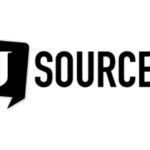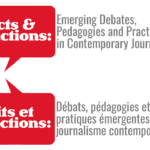Journalism teachers: attribution is vital for course slides, too
This is a cautionary tale about how my course slides, meant for student eyes only, can end up for sale online.
[[{“fid”:”4087″,”view_mode”:”default”,”fields”:{“format”:”default”,”field_file_image_alt_text[und][0][value]”:””,”field_file_image_title_text[und][0][value]”:””},”type”:”media”,”link_text”:null,”attributes”:{“height”:”595″,”width”:”1022″,”style”:”width: 400px; height: 233px; margin-left: 10px; margin-right: 10px; float: right;”,”class”:”media-element file-default”}}]]By Janice Tibbetts
This is a cautionary tale about how journalism teachers’ course slides, meant for student eyes only, can end up for sale online.
This happened to me, without my permission or knowledge. Several of my PowerPoint presentations and assignment instructions for journalism courses I teach at Concordia University were sold to Course Hero, a U.S. note-sharing site for university students.
My concern is not so much that one or more students sold my work when it was not theirs to sell. Rather, it sent a shiver down my spine, thinking about how liberally I borrowed material from a variety of sources while putting together my PowerPoint presentations, never imagining—perhaps naively—that they would be published online.
The first time I heard of Course Hero was this spring, when I woke up one morning to a CBC radio story about McGill and Concordia raising concerns about the crowdsourcing site, which boasts millions of documents, including student notes, slides, syllabi, practice exams and study guides. CBC Montreal, which did a cursory check of the nine-year-old site, reported that it found 35 chapters lifted from textbooks and 56 professors’ presentations.
One of the motivations for students is that those who upload 40 documents get free access to the site for one month. Also, they can download other documents in exchange for their offerings. On Course Hero, I found my slides on introductory feature writing, covering meetings, and covering courts. There were also instructions for several class assignments. I had posted all of these on Concordia’s learning management system, Moodle, only accessible to students registered in the given course.
The biggest concern among academics seems to be about copyright; students posting their professors’ work without permission, and Course Hero profiting from it. Another complaint is that so-called “study buddy” sites breed student plagiarism and inhibit learning by making notes, exams, and papers readily available.
While I don’t like the idea of material being posted without my permission, my more pressing personal worry is that I created my slides with the intention they would not be widely shared. As a journalist, one knows to always credit all sources in published stories. But I admit I have taken a more cavalier approach for course slides. While I have credited most of the sources I use for my presentations, I don’t acknowledge all of them – particularly the required textbook in a given course.
The Course Hero incident triggered a memory of a faculty lunch I attended a couple of years ago, when I was a sessional instructor at Carleton University. The conversation drifted toward the perils of posting slides on the university’s online course management system. Somewhere in the U.S., as the story went, a professor was accused of plagiarism after students ran his slides through an online plagiarism site.
The moral of the story, according to seasoned faculty, is to be very careful about what you post or even refrain from doing so and advise students to take good notes instead. But I don’t want to stop posting my slides—students ask for them and I would rather they pay attention in class than concentrate on detailed note taking.
Course Hero takes down material if it receives a complaint of copyright violation. I filed a request, and my material was promptly removed from the site, in compliance with the Digital Millennium Copyright Act.
In the meantime, the incident was a warning for me to review all my slides to make sure I always give credit where it is due. Not doing so is wrong, regardless of whether the material will be published.
[[{“fid”:”3244″,”view_mode”:”default”,”fields”:{“format”:”default”,”field_file_image_alt_text[und][0][value]”:””,”field_file_image_title_text[und][0][value]”:””},”type”:”media”,”link_text”:null,”attributes”:{“height”:”2790″,”width”:”2246″,”style”:”width: 100px; height: 124px; margin-left: 10px; margin-right: 10px; float: left;”,”class”:”media-element file-default”}}]]Janice Tibbetts teaches journalism at Concordia University in Montreal. She spent more than two decades in the daily news business, working for Postmedia News, Canadian Press, the Chronicle Herald and the Halifax Daily News. She has written extensively about justice, federal and provincial politics, and legal affairs.
Illustration photo by Benson Kua, via Flickr.




